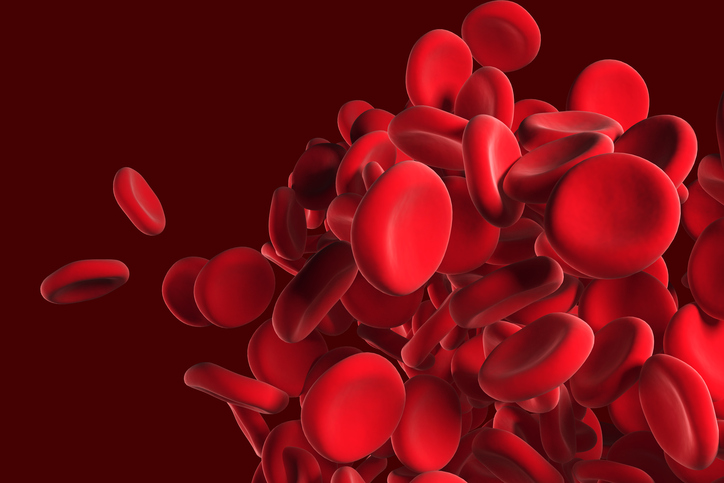
A Bluebird Bio gene therapy that treats the rare blood disorder beta thalassemia is now approved by the FDA, providing the option for a one-time treatment that could eliminate the need for regular blood transfusions patients undergo as the current standard of care.
Somerville, Massachusetts-based Bluebird set a $2.8 million wholesale price for the product, Zynteglo, making it one of the most expensive therapies to reach the market. But the biotech said Wednesday that it has also come up with a reimbursement strategy that is tied to patients achieving benefit from the therapy.
Beta thalassemia is an inherited blood disorder that leads to lower levels of hemoglobin, the oxygen-carrying protein in red blood cells. The resulting low levels of oxygen in the body leads to dizziness, weakness, fatigue, and bone problems, among other complications.
In the most severe forms of the disease, patients require regular red blood cell transfusions for life. Bluebird estimates that between 1,300 and 1,500 people in the U.S. have transfusion-dependent beta thalassemia. While transfusions offer a treatment option, the procedure also introduces other problems as it can lead to an excessive buildup of iron in the organs. Drugs are available to address iron overload, but those medicines come with their own side effects.
Zynteglo is made from a patient’s own stem cells. Those cells are harvested from bone marrow and genetically modified in a lab to produce a functional component of hemoglobin. The engineered cells are then infused back into the patient.

A Deep-dive Into Specialty Pharma
A specialty drug is a class of prescription medications used to treat complex, chronic or rare medical conditions. Although this classification was originally intended to define the treatment of rare, also termed “orphan” diseases, affecting fewer than 200,000 people in the US, more recently, specialty drugs have emerged as the cornerstone of treatment for chronic and complex diseases such as cancer, autoimmune conditions, diabetes, hepatitis C, and HIV/AIDS.
Bluebird tested Zynteglo in two single-arm, open-label Phase 3 studies enrolling 41 patients. Those participants, both children and adults, had beta thalassemia that required regular blood transfusions. The main goal of the studies was to demonstrate transfusion independence, which was defined as reaching and maintaining a pre-determined level of hemoglobin without needing any transfusions for at least 12 months. Of the 36 study participants that could be evaluated, 89% achieved transfusion independence. The one-time therapy is also showing that its effect can last. According to Bluebird, the results have been durable as of the last patient follow-up. The longest patient follow-up is four years.
The most common adverse reactions associated with Zynteglo included lower levels of platelets and other blood cells, a sore and inflamed mouth, vomiting, fever, and hair loss. The FDA also noted that the therapy introduces the risk of cancer, a concern that arose last year in a separate test of another Bluebird gene therapy for a different blood disorder, sickle cell disease. The cancer case that paused that clinical trial was deemed to be unlikely to have been caused by the gene therapy.
No cancer cases were reported in the Zynteglo clinical trials. An FDA advisory committee weighed the cancer risks of Zynteglo in June, then voted unanimously that the therapy’s benefits outweigh its risks. The risk of blood cancer is noted on the drug’s label, but not inside a black box, the FDA’s most serious type of warning. The prescribing information states that patients should be checked at least once a year for 15 years for any changes in the blood.
Bluebird said Zynteglo’s $2.8 million price reflects the potentially curative benefit of a one-time treatment that reduces the burdens to patients and the healthcare system that come from regular blood transfusions. The company calculates that this financial burden can reach up to $6.4 million for a beta-thalassemia patient.
With the reduction of financial burdens in mind, Bluebird announced a plan that limits the risk to payers. The strategy allows payers to make an upfront payment that can be combined with an outcomes-based agreement. Under this agreement, Bluebird said it will reimburse up to 80% of Zynteglo’s cost if a patient fails to achieve and maintain transfusion independence up to two years following the gene therapy’s infusion. Bluebird added that an estimated 70% to 75% of transfusion-dependent beta thalassemia patients are covered by commercial insurance and the company is in negotiations with national pharmacy benefit managers that manage these plans. The company is also speaking with state Medicaid agencies, which represent an estimated 80% of publicly insured beta thalassemia patients.
Photo: virusowy, Getty Images













